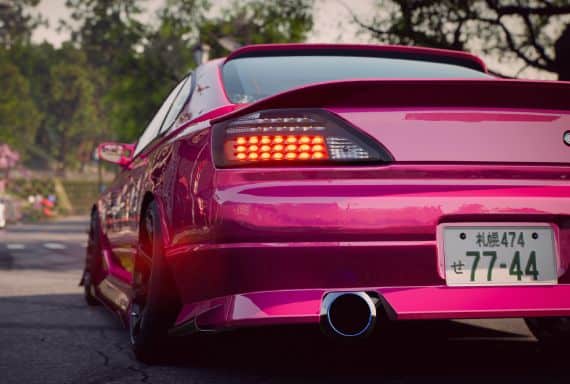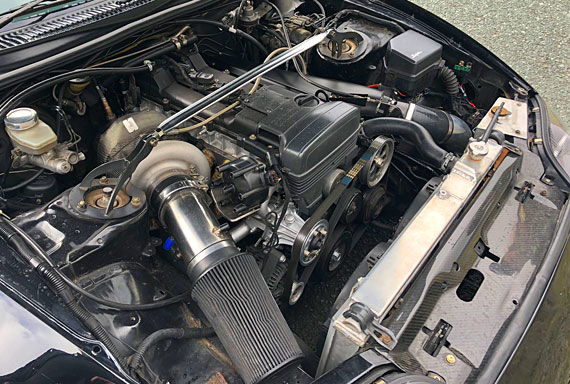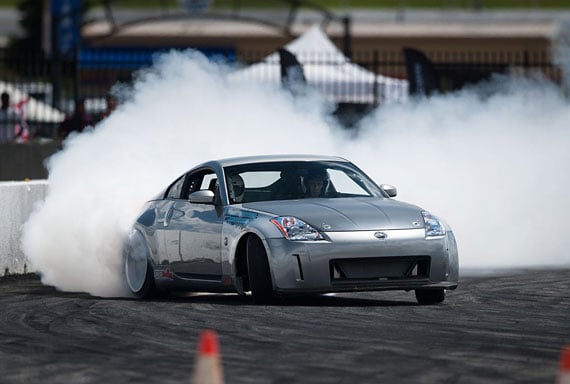1UZFE – The Complete Motor Guide
Considering either buying a car with a 1UZ-FE or thinking about swapping one into your car, plane or boat? We’ve covered all you need to know in our 1UZFE engine spotlight.
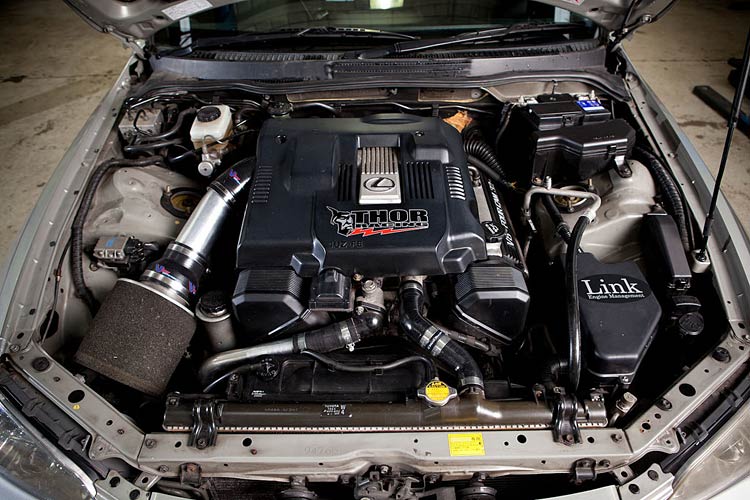
In 1989, Toyota’s 1UZFE engine became the firstborn in their soon-to-be legendary UZ family, which later went on to include the 2UZ-FE and 3UZ-FE.
A highly advanced V8 engine for its time, the 1UZ was showcased in the Lexus LS400, which was the Japanese rival of the BMW 735i and Mercedes 420 SE at the time.
However, the Lexus LS was not the only vehicle to use this legendary powerplant. The Toyota Crown Majesta and the Lexus SC 400 were also powered by this engine, albeit with some minor adjustments.
In terms of performance specs, the 4.0-liter (3968 cc) 1UZ-FE produced 256 hp at 5400 rpm along with 245.4 lb-ft of torque (333 Nm). These figures increased significantly as Toyota continued development during the following model years.
The cylinder bore was 87.5 mm, and Toyota constructed the entire cylinder block using aluminum. The two cylinder banks were placed at a 90-degree angle from each other, making what is commonly known as a “V” formation. The 1UZ-FE came with a DOHC (Dual Overhead Cam) setup with two camshafts and two aluminum cylinder heads, along with a five-bearing crankshaft, and four valves per cylinder. The piston stroke of this V8 was 82.5 mm.
Many experts are sure that the 1UZ was one of the most substantial contributors towards Lexus becoming the top-selling luxury car brand in the US at that time, further proving just how impressive this V8 engine is.
With a combination of high power, impeccable value for money, impressive fuel efficiency, and undisputed reliability, it’s easy to see why.
Drifters are quickly realizing the untapped potential of combining immense power with reliability at a highly affordable price, this has led to the 1UZ-FE seeing a rise in popularity over the years on the tuning scene, and more enthusiasts than ever are opting for this reasonably-priced JDM LS alternative.
The 1UZ was something of a game-changer in its time. In the Late 80s, Japanese auto manufacturers weren’t exactly renowned for their V8s, and no DOHC V8s had been reliable until then. However, when Toyota entered the 1UZ into the mix, it quickly became up there with some of the best engines ever produced.
Check out this great video from Donut Media as they revisit the history of the legendary LS400:
Are you looking for a compact V6 to add to your shopping cart instead of a V8? Our Nissan VQ35DE guide was written just for you.
Many claimed that it’s a ‘million-mile engine’ if correctly maintained. They are commonly seen with over 250k miles (400,000 km), and there are many out there with over 500k miles (800,000 km) that are still going strong.
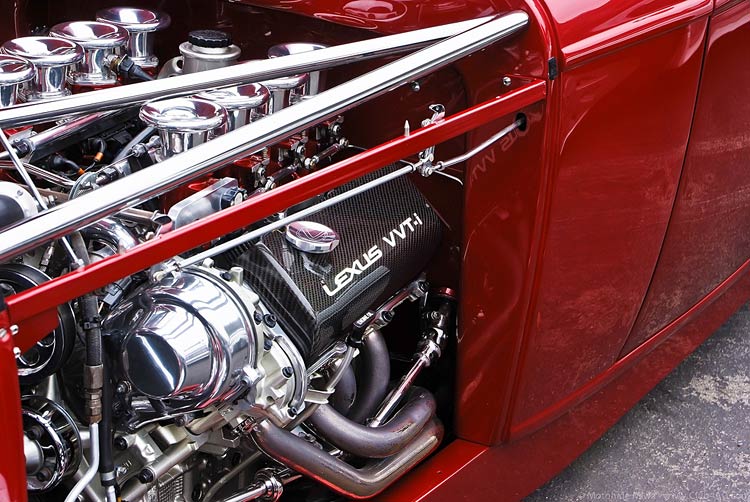
Not only was it reliable, but it was also silky smooth, high-revving, and ridiculously strong. For a quad-cam V8, it was also very compact, which allowed for the tuning scene to place these into a vast variety of unlikely smaller cars.
All of the UZ-series engines from the factory were mated to automatic transmissions. There has never been a Toyota V8 that has been tied to a manual box. All UZ-powered cars were rear-wheel drive except just two – the AWD Aristo and a Land Cruiser.
Despite the earlier models leaving the factory with 251 hp, these are the most desirable for tuning. Toyota carried out some minor updates to the engine over the years to help increase horsepower and efficiency.
This powerplant initially came as a non-VVTI engine, which was later updated to include Toyota’s VVT-i (Variable Valve Timing with Intelligence) system after the 1998 model year.
VVT-I was the perfect addition that added a further 50 horsepower, also bringing the peak torque down by 400rpm, making it far more enjoyable for street use.
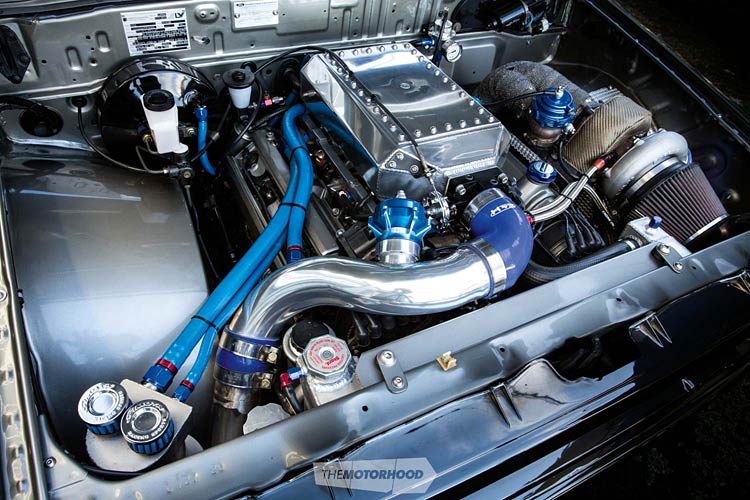
Up until 2002, the ever-popular 1UZ continued to be rolled out of the Toyota showrooms, featuring in variants such as the Toyota Crown, until production ceased to make way for the new 4.3-liter (4292 cc) 3UZ-FE. During that time, the 1UZ won several ‘Best Engine’ awards and won over the hearts of owners and tuning enthusiasts alike.
Fast forward to the present day and the 1UZ’s popularity meant that engines are readily available from just about anywhere on the spares and parts market, making them cheap and easy to source – the perfect solution for those that are considering them for an engine swap.
With prices skyrocketing on alternative conversions such as the 2JZ-GTE, the 1UZ is a breath of fresh air, providing you’re not a V-hater!
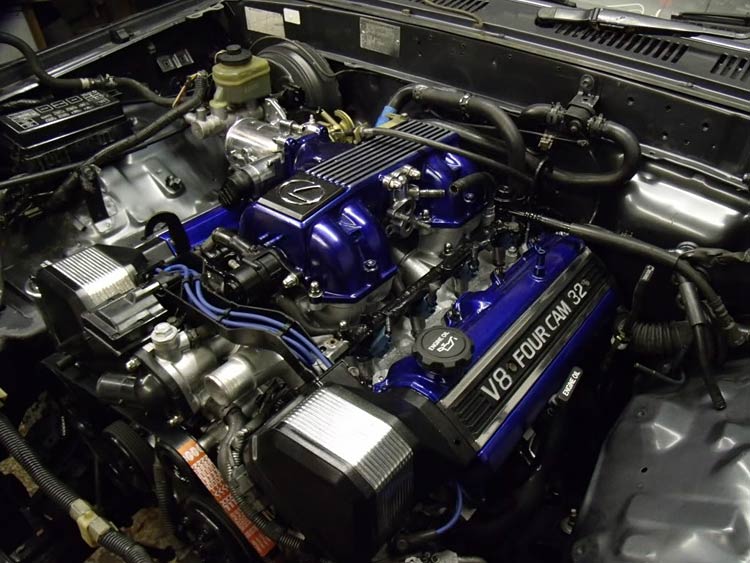
Interesting facts
The 1UZ-FE isn’t only popular in cars. A little-known fact about the 1UZ is that it hasn’t just been featured in all sorts of automobiles. In fact, it’s also an FAA-certified aircraft powerplant!
In the early 1990s, Toyota began working with Hamilton Standard to develop a twin-turbocharged aircraft engine from the 1UZ. This resulted in the FV2400-2TC, which was a 360-horsepower fuel-injected engine. Although they received FAA certification in 1996 and began production in 1997, the project was unfortunately later abandoned.
Flight testing was actually carried out with the engine, and it was still an excellent opportunity for Toyota to have a taste of the aviation industry. We find the thought of a flying 1UZ pretty crazy! Don’t believe us? Then, check out the video below!
Alongside that, the 1UZ is now commonly used as a popular motor in racing boats. Check out this epic video – we need one of these in our lives!
1UZ-FE Tuning Potential
With the 1UZ being updated with VVT-i in 1999, you may want to consider whether an earlier or later model will likely be best for your needs.
Sure, the VVT-i model provides higher power and compression out of the box. However, when the 1UZ was initially released, Toyota was so keen to make a statement in the luxury car market that they over-engineered the engine.
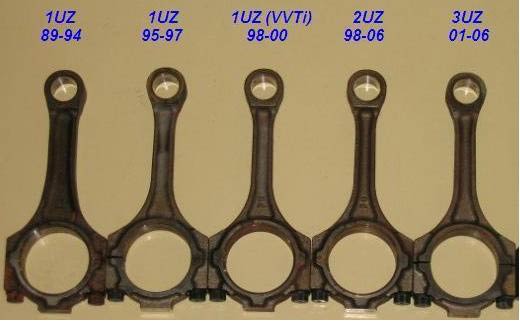
Once they had tried and tested the capabilities of the engine with daily market use, later generation 1UZs were actually fitted with thinner rods and weaker pistons since they knew these were still easily capable of withstanding the power.
With sintered and forged connecting rods and a forged steel crank, some owners have managed to get away with revving their 1UZ to 9,000rpm with the stronger stock internals.
This means that post-94 engines are likely to feature the thinner rods and rod pins (despite VVT-I not being added until later), therefore making pre-94 the holy grail variant for tuning. It’s not easy to tell them apart, but often you can tell by the writing on the plug leads, just remember that they may have been replaced later on.
We wouldn’t recommend going above 500hp with stock internals on the later rods.
Naturally-aspirated engines have been said to be capable of achieving around 400hp, but the expense of trying to squeeze out the extra horses will be far higher with less end reward. It’ll end up costing you a fortune with heaps of work, but the end result will be worth it.
Those of you that are planning to buy a 1UZ-FE for forced induction or high-tuning purposes but aren’t planning on upgrading the internals are going to be better off with the more robust, earlier models.
A testament to what the 1UZ is capable of is this video showing an SC400 with 800hp without upgrading the bottom end, cams, intake manifold, ring gap, or any porting!
There have been rumors of 1,000 hp on the stock internals with thicker head gaskets and studs making the rounds, and while we certainly have no reason to doubt this based on the video above and numerous other builds, the reliability would undoubtedly come into question at this point.
Overall, the 1UZ-FE is inherently strong, and there’s not too much to worry about besides holding out hope for an earlier model. Of course, not all of them have been maintained perfectly over the years, so it’s always advised that you ensure you are building a solid engine from the start.
You can remove the rocker covers and check the internal condition. A well-maintained example will be a nice golden color, however, if you see anything like black sludge, we recommend finding a cleaner example.
1UZ-FE Forced Induction
Firstly, you’ll want to check out our Turbocharger Vs Supercharger article to ensure which forced induction method is the correct one for your needs.
One downside with the 1UZ is that a strangely small amount of off-the-shelf aftermarket parts are available. This engine is perfect for forced induction, yet the most popular method for carrying this out still seems to be going down the custom route.
1UZFE Supercharger
Carrying out a supercharger swap may sound daunting, but there are many guides out there to show you how it’s done, and assuming it’s done properly you can guarantee you’ll have a considerable amount of fun for the money.
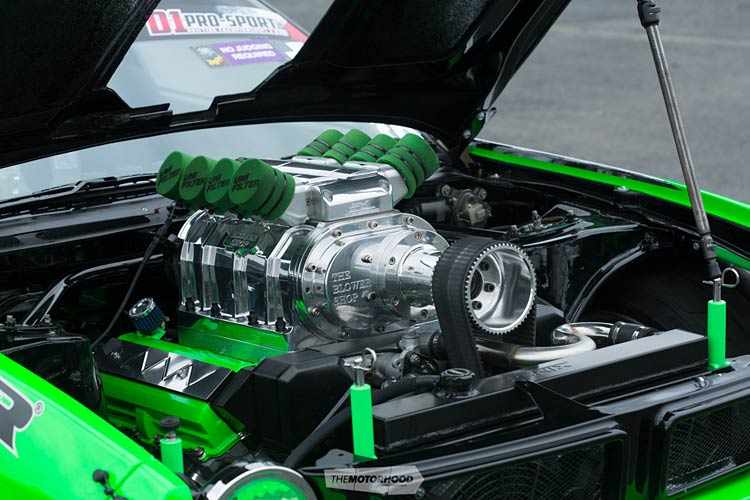
With fundamental additional changes such as fuel injectors and exhaust, the 1UZ-FE can make around 350+ horsepower at 6psi (0.4 bar). If you were then to go on to build the bottom end with lower compression ratio pistons, connecting rods, ARP studs, intercooler, 2JZ injectors, an uprated fuel pump, and a mapped ECU, you can expect to achieve over 400 at 10psi (0.7 bar).
It may sound like a lot of work, but it’ll undoubtedly be worthwhile.
The Eaton M90 and Terminator Cobra superchargers are popular choices for the 1UZ.
1UZFE Turbocharger
First off, let us show you what has been achieved with a far-from-stock 1UZ-FE. In an unlikely engine transplant, this owner has opted for a twin-turbo setup in his Ultima GTR. The outcome? A mind-blowing 982hp on a Porsche 6-speed gearbox!
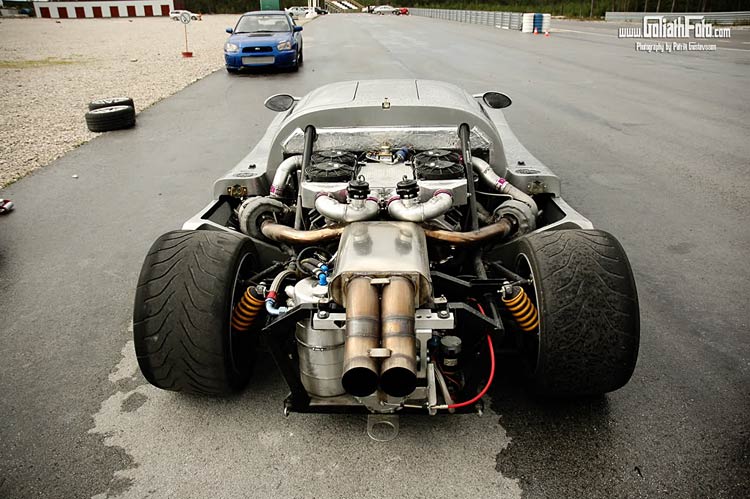
Being a Japanese engine, turbo kits are more readily available for 1UZs than superchargers, but they’re still far from common.
When adding a turbo, your best bet is to go with the pre-94 engines. We understand that they’re obviously going to become harder to find, so the best alternative to ensure you have a good foundation and reliability is to consider uprated internals, to begin with, especially if you’re aiming for high power. For moderate power, the stock internals, even on the later models, should be capable of up to 500hp.
With the correct internals, much like Toyota’s other fantastic engines, such as the 2JZ, the 1UZFE block can easily achieve 1,000 horsepower on the correct setup if you have big-power goals. We’d love to see it if you have or are planning to!
For a basic turbocharged setup, we’d consider buying a single-turbo kit (such as the Garrett GT40 or VNT25), multi-layer steel head gaskets, wastegate, blow off valve, boost controller, oil lines, fuel injectors, and an uprated ECU. We’d expect around 450 horsepower with these upgrades, which should be safe even with the later stock internals. We would be happy to go over the 500hp range with forged pistons.
Which cars left the factory with the 1UZ-FE engine?
The following cars featured the 1UZ-FE:
- Lexus GS400
- Lexus LS400
- Lexus SC400
- Toyota Aristo
- Toyota Celsior
- Toyota Crown
- Toyota Soarer
- Toyota Crown Majesta
And rather amusingly…
- Some JDM Hi-Ace Ambulances
Desperate for more 1UZ-FE goodness?
Don’t worry; we’ve got you covered. Check out some of the best videos on YouTube that prove how awesome this JDM V8 powerplant is!
We weren’t lying when we said they’d been fitted to a wide variety of cars. Check out this turbo-powered old-school KE20 Corolla!
It’s also been a popular swap for the Toyota GT86/Scion FR-S/Subaru BRZ. High Performance Academy show you what’s needed to carry out the swap in this series:
Once you’ve fitted it, you can hit the track and throw it sideways like French drifter Axel Francois, running a competition-spec GT86 with a 1UZ racing engine!
If you’re planning to throw it down at the track, you’re going to enjoy this S12 1UZ video:
If you enjoyed that, why not strap another turbo to it for maximum awesome?
Thank you for reading our 1UZ-FE engine spotlight guide
We hope you’ve gained enough knowledge to know whether or not the 1UZ is the right engine for you, although we feel like it’s a bit of a no-brainer! We’ve got a whole lotta love for the 1UZ!
If you enjoyed this article, please share it with the buttons at the side and bottom of your screen. Find this information helpful? Please post a link to it on your cars owners club. We appreciate your support.
Photography credits
We thank the following entities for the use of their photography in this article:


 (21 votes, average: 4.71 out of 5)
(21 votes, average: 4.71 out of 5)






